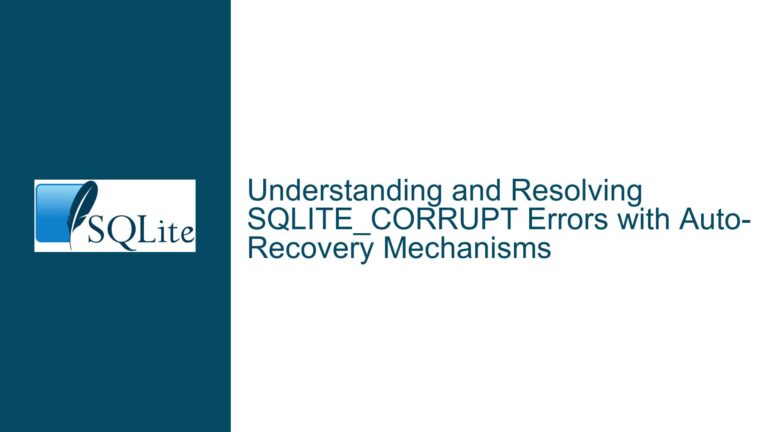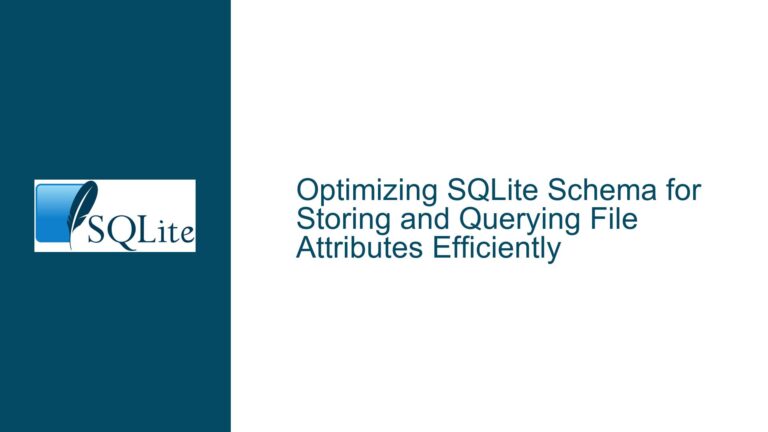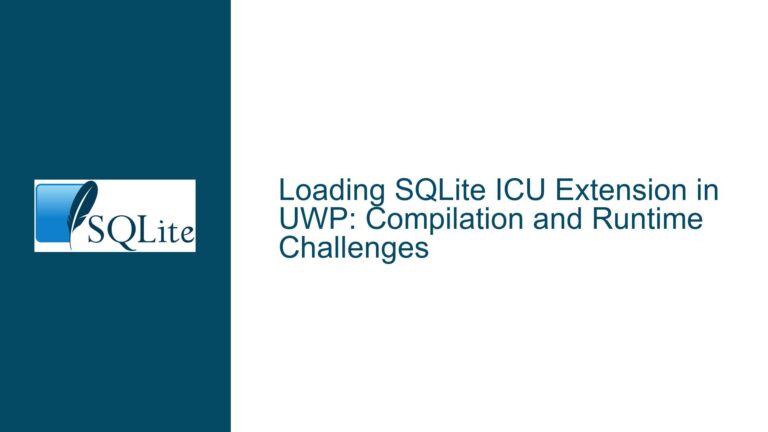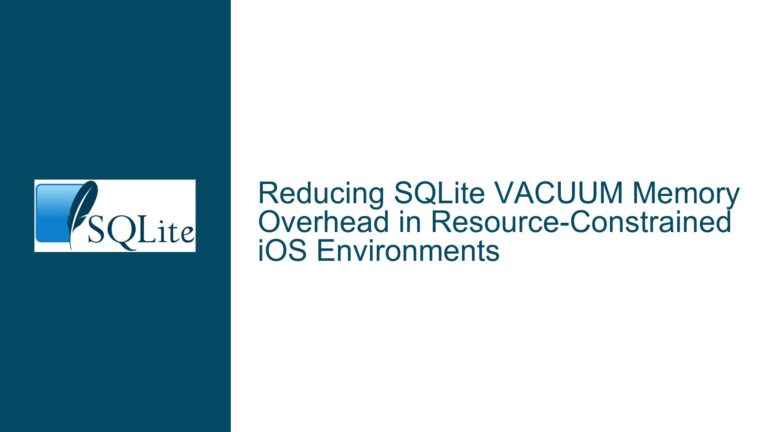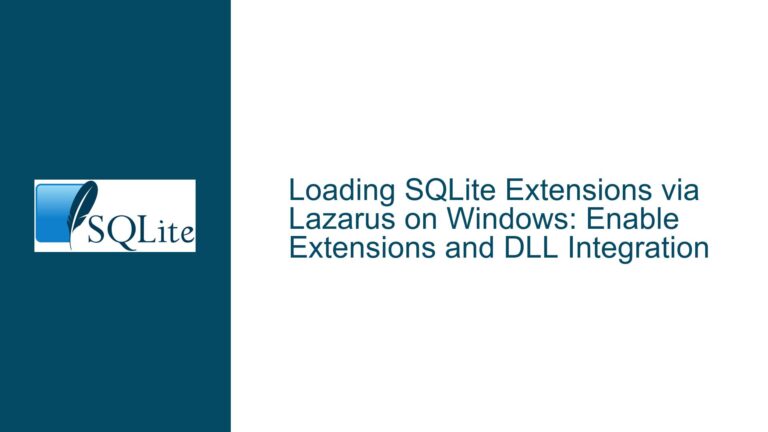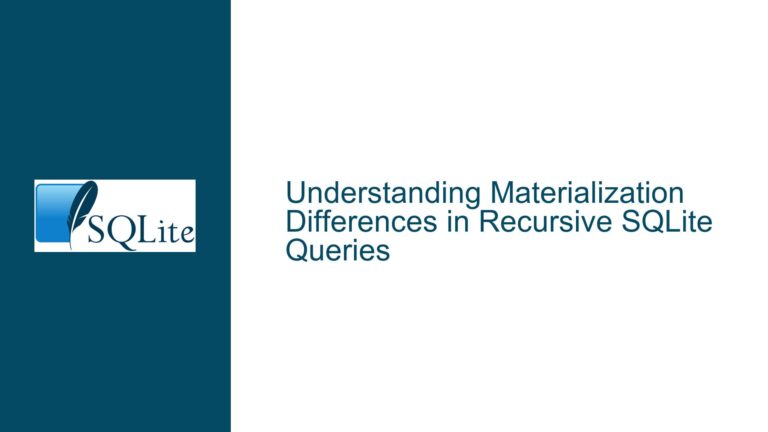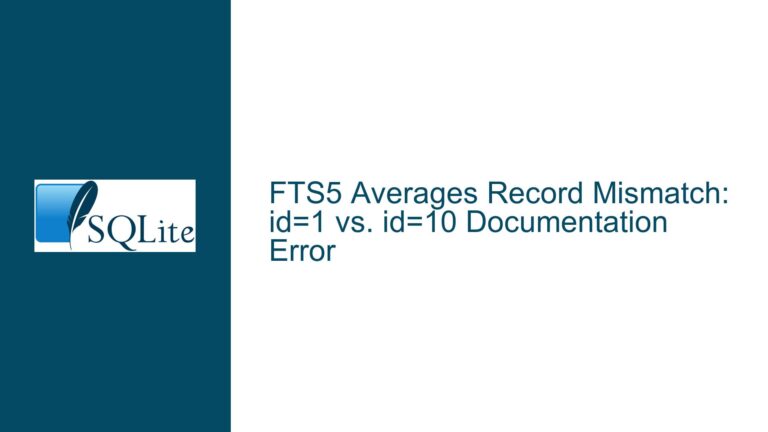and Resolving SQLITE_CORRUPT Errors with Auto-Recovery Mechanisms
SQLITE_CORRUPT Error Origins and Recovery Mechanism Triggers The SQLITE_CORRUPT error (error code 11) indicates that SQLite has detected structural inconsistencies or invalid data patterns in a database file. This error is not a blanket indicator of permanent database damage; its root cause may stem from transient system-level issues, application logic flaws, or genuine on-disk corruption….
